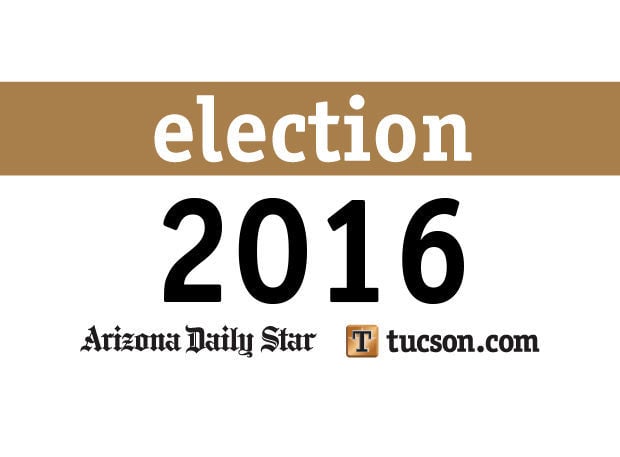PHOENIX — Organizers of twin initiative campaigns to tighten up on dark money and open up political primaries suspended both efforts Thursday after a key source of funding dried up.
Texas billionaire John Arnold and his wife Laura, who had fronted each of the groups $500,000 with a promise of more, is apparently interested in financing only the proposal to create a system where all candidates ran against each other in an open primary, regardless of party affiliation, said Chuck Coughlin, treasurer for both efforts. Under that system, the top two vote-getters would face off in the general election, even if both were of the same party.
But Coughlin said Open Primaries, the national organization that Arnold bankrolls, told him that it never intended to try to get Arizona voters to enact new laws requiring that the sources of “dark money” be disclosed.
Coughlin said initiative organizers had made it clear from the start that they wanted to run both campaigns in tandem. In fact, he said, polling showed that running both under a single “good government” umbrella increased the chances that both would pass.
In the meantime, Coughlin said $178,000 is being returned to Open Primaries, with other funds already spent or committed.
But the problem is deeper than just the refund. The campaign was operating under the assumption that Open Primaries would kick in at least another $500,000 to each campaign — money needed to hire paid circulators to get the required signatures for both measures, Coughlin said.
Former Attorney General Terry Goddard, who heads the dark-money initiative, and former Phoenix Mayor Paul Johnson, who is championing open primaries, both said they intend to push on, at least for the time being, with volunteer circulators.
Goddard said he has been very encouraged by the public support for his plan. And he noted that there is increased public awareness of the issue, with the Senate earlier this week approving legislation that could actually increase the flow of dark money into Arizona politics.
All that, however, may not be enough.
Coughlin said that, at last count, he had only about 20,000 signatures for each measure, and each one requires 225,963 valid signatures on petitions by July 7 to qualify for the November ballot.
That makes money crucial: Without a commitment of at least $1.2 million for each of the measures in the next 10 days, both are likely dead for this year, Coughlin said.
Johnson’s measure, the one Open Primaries apparently thought it was funding alone, would jettison the current system of nominating and electing candidates for local, state and federal office into what comes closer to a “top two” system in favor of a wide-open primary.
What’s important about that is that the political affiliation of the candidates would not matter.
So if the two people with the most votes were Republicans, they would advance to the general election.
Voters defeated a similar measure in 2012.
The other measure being championed by Goddard deals with campaign finance.
Current law requires any group that spends money to influence an election to file reports.
But those organized under the federal tax code as “social welfare” organizations argue they need not disclose the sources of their money.
That has allowed various corporations and individuals to funnel large sums of money into TV commercials, billboards and direct mailers while leaving the targeted voters in the dark about who is interested in the race, a factor that might help voters determine how much weight to put on claims.
The initiative would have required disclosure of the original source of anyone who puts at least $10,000 into any political campaign in the 90 days before an election.
Goddard said, while he was counting on the outside cash, he remains hopeful that the campaign will remain alive.
“To some degree, there was this sense that, ‘OK, this very wealthy man in Texas wants to help us. I guess that is a false sense of security,’” he said. “We’ve had a rude awakening on that point. But I know that the popular sense of dark money in particular and how much politics are broken in Arizona is overwhelming.”
He specifically referred to SB 1516, approved by the Senate earlier this week.
Among the provisions, it would surrender the state’s right to determine if groups organized under the Internal Revenue Code as “social welfare” groups were primarily organized to influence elections and therefore required to disclose their donors.
Instead, at the behest of Secretary of State Michele Reagan, the measure would defer to decisions by the Internal Revenue Service about the status of these groups.
Replacing the lost dollars could prove difficult, with Coughlin saying there is political pressure to kill the initiatives.
“When we have approached people, it is clear to us in those conversations that the governor’s office does not want disclosure on the ballot,” he said.
Daniel Scarpinato, press aide to Gov. Doug Ducey, denied that his boss or anyone working for the governor had done anything to deter anyone from donating to either cause.
Coughlin acknowledged that, in unveiling the initiatives in January, proponents said they hoped to raise as much as $13 million. That should have made the loss of $1 million to $2 million only a speed bump.
But Coughlin said the donors he intended to pursue only fund measures that have already qualified for the ballot, something that won’t happen without the extra $1.2 million for each.
Part of what makes the reversal of fortune so much of a surprise is that both Goddard and Johnson said in January that they intended to divide the cash evenly between the two ballot measures.
John Opdycke, president of Open Primaries, was also at that event.
But a spokesman for Open Primaries said that reference to a 50-50 split was not for the money the Arnolds provided, but rather for what Open Primaries intended to help raise from others for the campaign.





